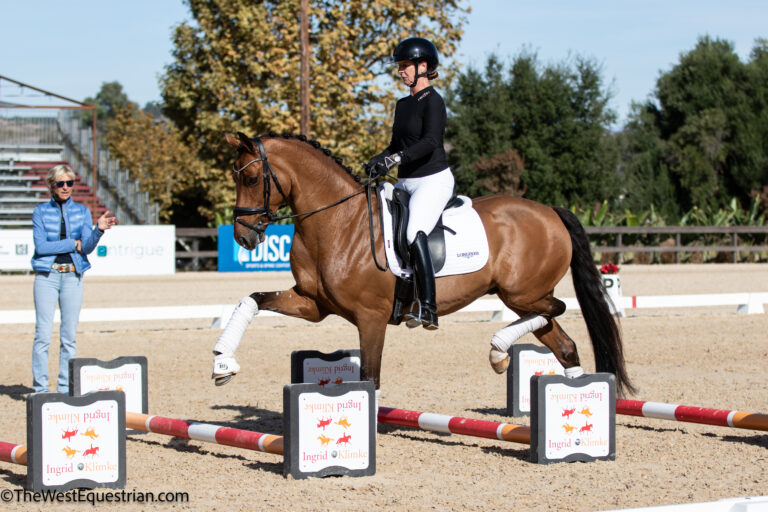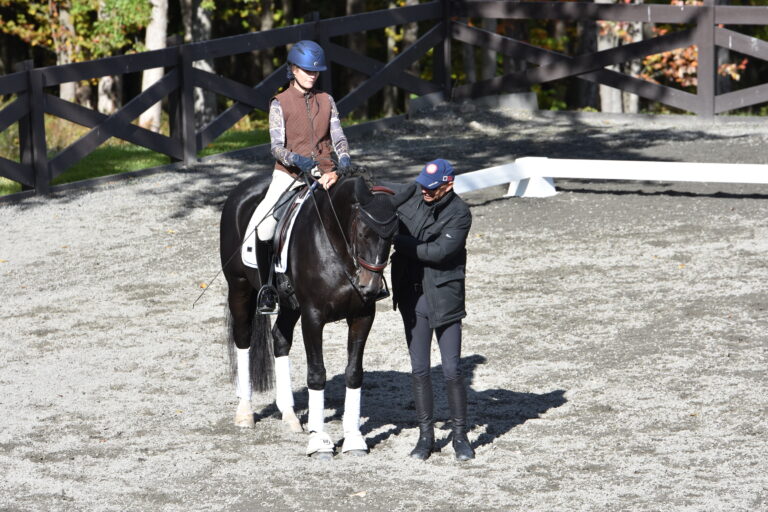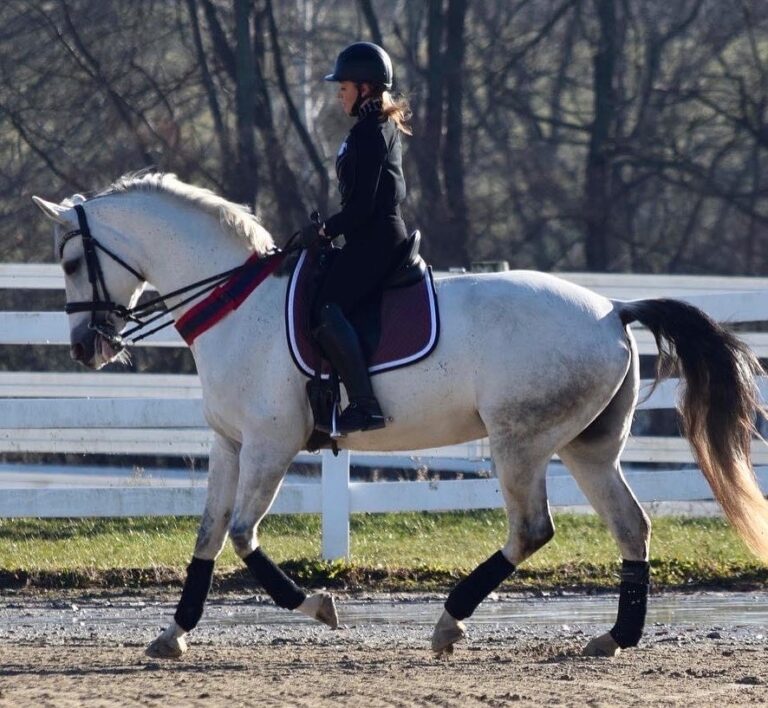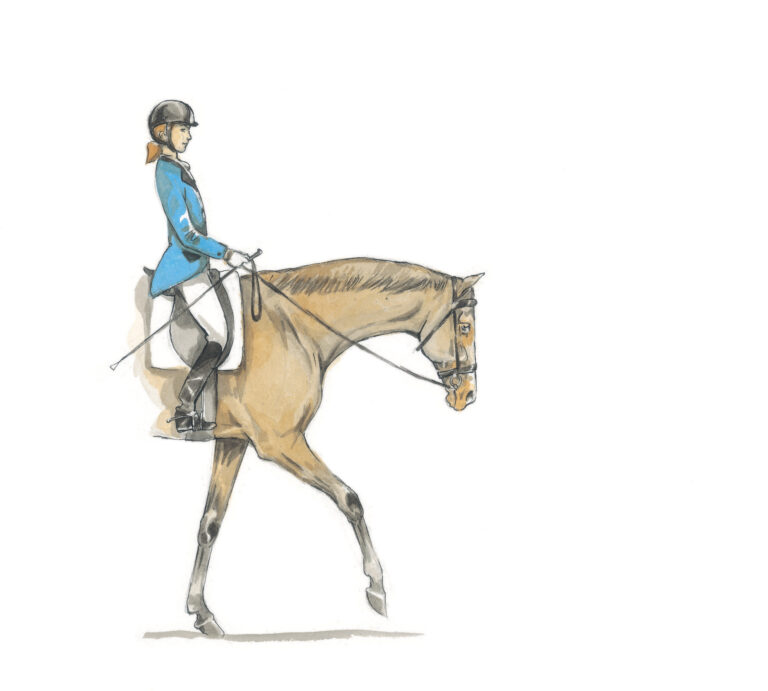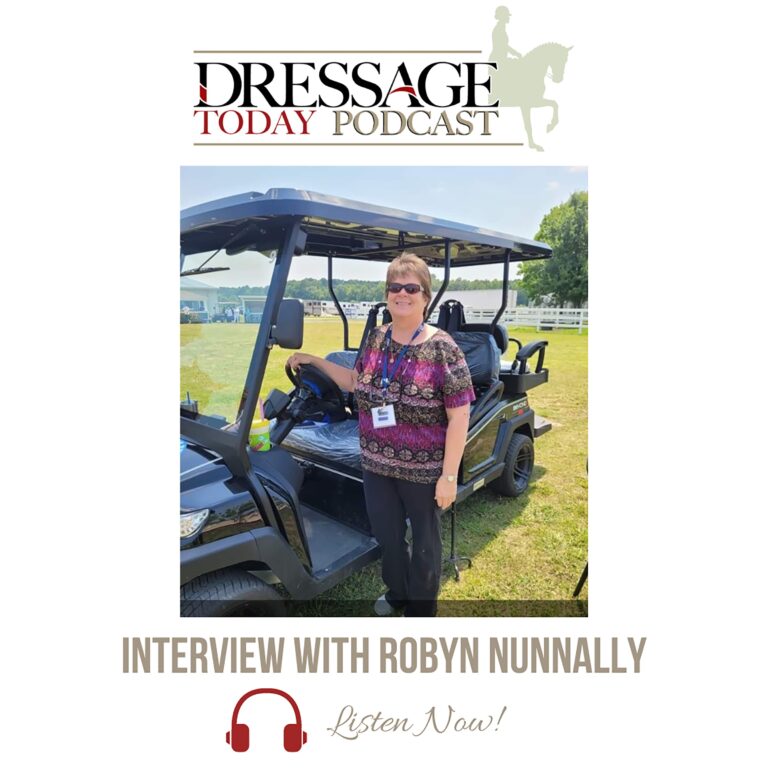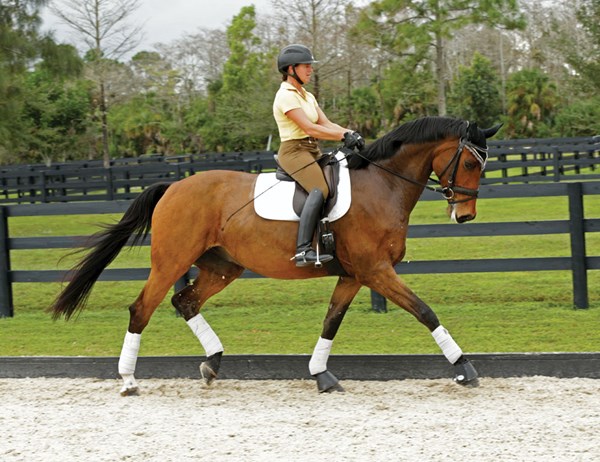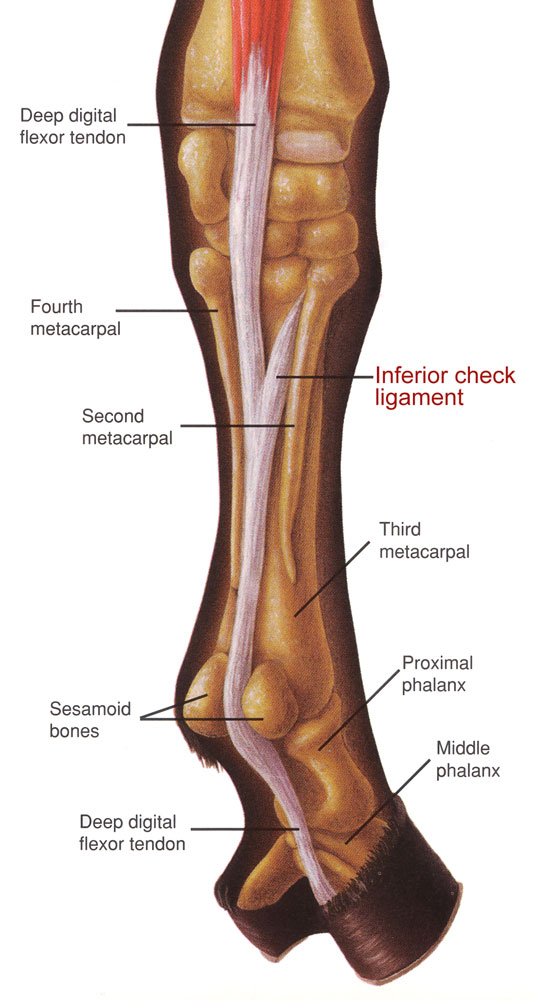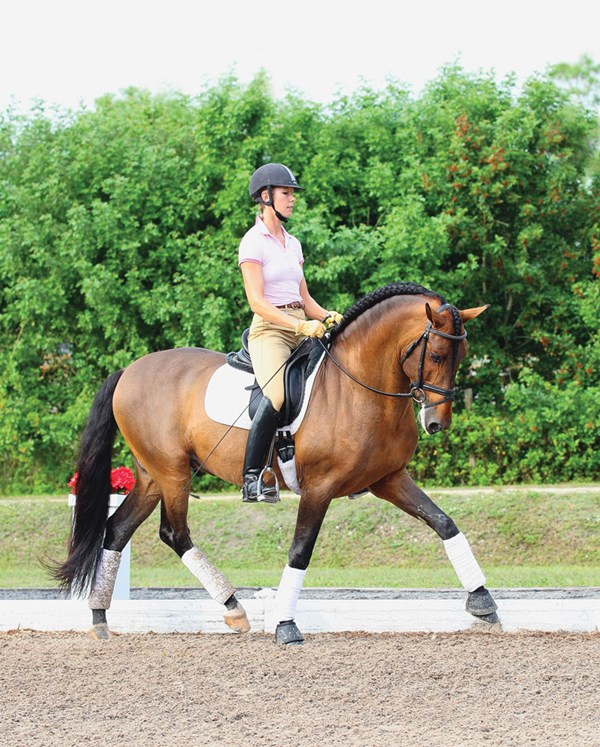
There’s a big difference between choosing a good instructor for you and a good trainer for your horse. If your horse needs a trainer then, of course, you’d want to choose the best rider, but if you want them to teach you, I’d suggest evaluating other things.
Ask yourself why you are riding, and choose the instructor who will help you toward that goal. Not everyone wants to go to the Olympics. You may just want to learn the movements and enjoy your horse, and that is absolutely fine. Some instructors happily accommodate this goal, but some (like me) cannot tear themselves away from perfecting the basics before moving on. A good instructor should be able to explain things in a clear, comprehensible way that allows you to progress toward whatever goal you may have.
Choose someone who suits your needs. When I was competing a lot, I knew I couldn’t give people a lot of attention and was surprised at how many who—despite telling me they wanted a great deal and me telling them I couldn’t supply it—still wanted to come. I literally had to turn people down because I knew I couldn’t make them happy. Try to make this decision on your own.
Be sure to choose someone you want to be like, both in riding position and in attitude. This is not just to ensure that they teach you the correct things. Even if you don’t do it purposely, your brain is telling your muscles to mimic what it sees. The attitude toward the horse is equally as transferable through the eyes. You want to see balance between correction and reward. At the end of a ride, you want to see both the horse and the instructor motivated for the next ride even if they had trouble. So I recommend only watching riders you want to emulate.
It’s also important to know how you learn. Some people learn from “yellers,” while others get tied up and can’t react when someone yells at them. Some people learn from gentle coaxing; others need a kick in the butt. Some instructors are methodological explainers, and there are some who don’t know the “why,” they just know what to do. There are very few trainers who can adjust their method, so choose someone with a teaching style you can learn from. And remember not to train with someone long-term just because a friend said that person is great. I’d go watch a couple of lessons before I decided.
Courtney King-Dye represented the United States at the 2008 Olympic Games riding Harmony’s Mythilus and at two World Cup Finals riding Idocus. She is a U.S. Dressage Federation (USDF) Certified Instructor through Fourth Level and USDF gold medalist (ckddressage.com).


